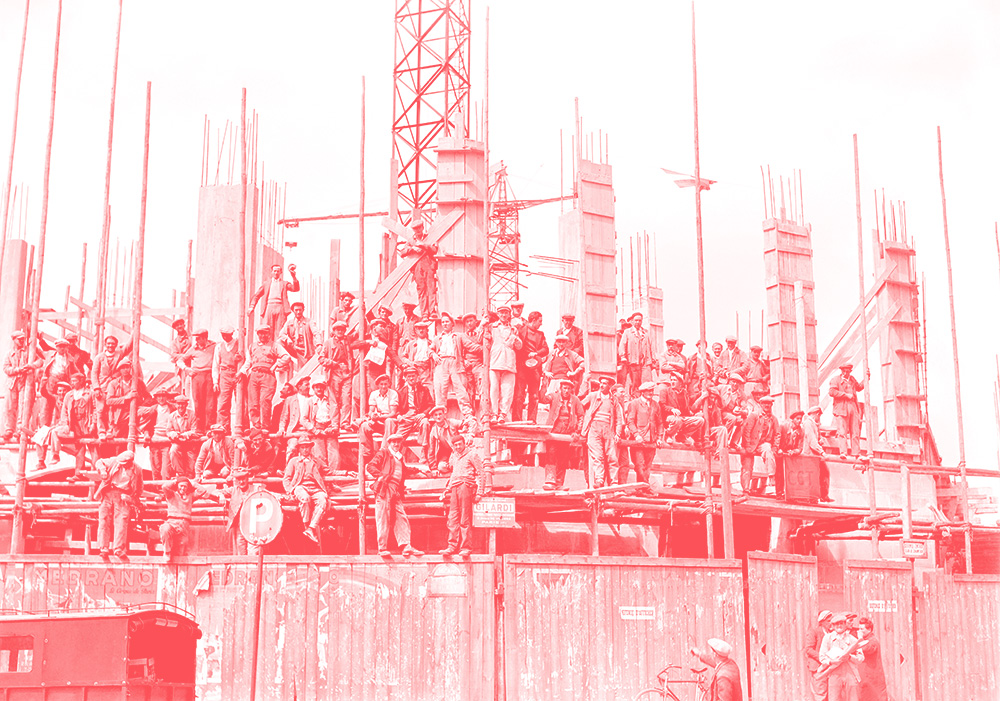
Vol 9No 2–3
Fall 2025The Plans That Failed
Soviet-style planning delivered rapid industrial growth but collapsed under chronic shortages, bad incentives, and political sclerosis. Even partial market reforms, like Hungary’s New Economic Mechanism, could not overcome the system’s structural flaws. Socialism’s future lies in marrying democratic control and social ownership with the allocative power of markets.
Social Democracy and the Class Struggle
According to many on the Left, the set of feasible income distributions within a capitalist economy is tightly constrained by capitalists’ control over investment. Our empirical analysis of the postwar US economy raises significant doubts about this view. Class struggle and the power resources of the working class can affect the long-run distribution of incomes between classes.
The Courts and American Capitalism
A functional analysis of the Supreme Court as a node within a larger project of hegemonic preservation, this essay clarifies the nature of judicial power and recalibrates the terms of the court reform debate by bringing it into conversation with a longer tradition of left theory.
Writing the Climate Crisis
This essay examines how cultural theory displaces capitalism in its accounts of the climate crisis. Contrasting Amitav Ghosh’s Gun Island with Matt Haig’s The Life Impossible, I argue that their differing approaches reveal what much cultural analysis leaves unexamined: the structural ties between ecological breakdown and global capital.
The New Popular Front
The ascendancy of the authoritarian right has generated a counterreaction on the part of the Left to restore the Popular Front that once confronted fascism. Although often led by the socialist left, the Popular Front was the vanguard of the movement to democratize capitalism rather than abolish it. Is recreating such a front the only or best way to confront the threat of fascism today?
What’s Wrong With the German Left?
Far from intervening responsibly against the Israeli genocide, the German left has fallen in with the German state in suppressing dissent and backing Israel. This cannot be attributed to historical memory or political miscalculation. Its gross participation in ginning up moral panic around spurious accusations of antisemitism is rather an extraordinary abdication of its moral duty.
From Momentum to Your Party
The rightward slide of the Labour Party under the leadership of Keir Starmer is one of the most remarkable developments of the past few years. His tight grip on power and his excision of several key left-wing members have raised questions about the future of the Left both inside and outside the organization. In this context, the sudden announcement of a new political party by Jeremy Corbyn and Zarah Sultana provides an opportunity to take stock of the British left, not just today but in the recent past. Catalyst interviewed Tom Devenny, an official in the British trade union movement and a former member of Momentum.
The Left Has Always Fought for Abundance
The Left once promised plenty for all. Now liberals call for abundance while socialists hesitate and environmentalists shudder. The NGO-industrial complex these liberals target is indeed a fetter on production that must be broken, but so is the profitability demanded by capital. Socialism needs abundance, and abundance also needs socialism.
How Can Workers Organize Against Capital Today?
John Womack’s labor strategy is about workers finding the capacity to "wound capital to make it yield anything.” But the massive challenge in today’s deindustrialized economy is locating where that leverage actually lies.
New Labour Totally Subordinated Labour to Capital
Why was New Labour “intensely relaxed” about “people getting filthy rich”? The answer lies in a comprehensive analysis and critique of Labourism itself, which the new book Futures of Socialism fails to deliver.
Austerity Is an Antidemocratic Strategy to Boost Capital
Austerity policies have their roots in efforts by economic elites to crush working-class power after WWI and redistribute income upward. To reverse austerity, democratic control over economic policymaking is essential.
How Did the Paris Commune Shape British Culture?
British literary responses to the Paris Commune of 1871 expressed shock and fear about the collapse of the bourgeois social order. But they also registered sympathy with the Communards and their revolutionary aspirations.
Culture Can’t Explain the Arab Revolts
Violence and Representation in the Arab Uprising shows how the Arab revolts empowered democratic citizenship. But a focus on vibrant cultural creativity is no substitute for concrete analysis of political agency and economic structure.
“Settler Colonialism” Can’t Fully Explain Our World
Settler colonialism is often described as a singular, transnational mode of domination. But it’s impossible to understand colonialism without political economy and material interests.